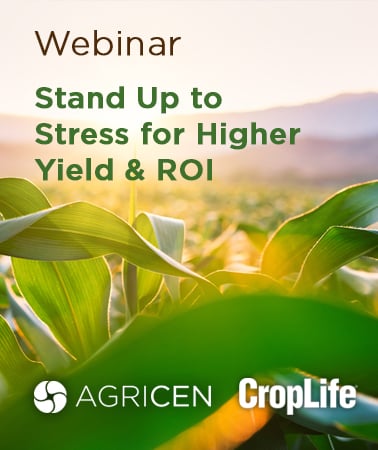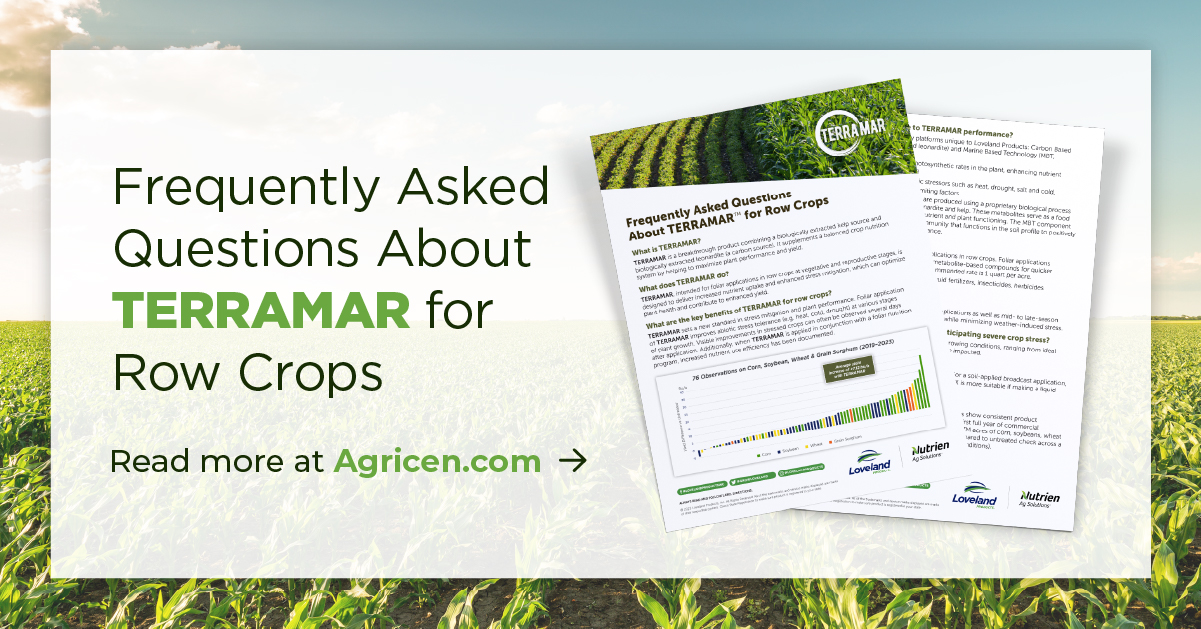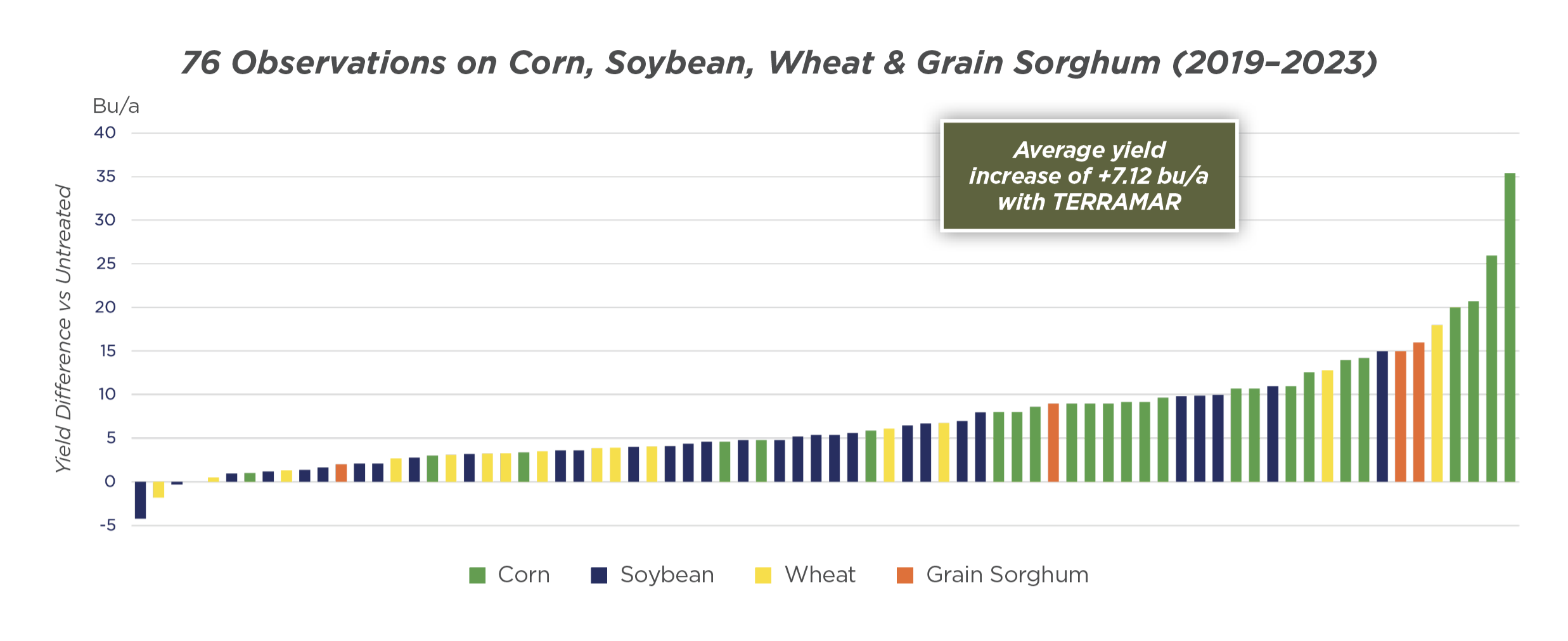Brian Cornelious, PhD, Director of Agronomic Training, Agricen
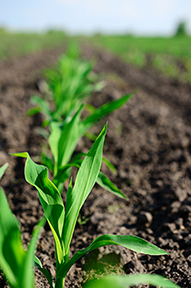 As growers prepare for the upcoming cropping season, uncertainties surrounding commodity prices and fertilizer, seed and crop protection inputs will heavily influence the decision-making processes before planters roll. One thing, however, is always certain: Growers want to maximize production from every acre.
As growers prepare for the upcoming cropping season, uncertainties surrounding commodity prices and fertilizer, seed and crop protection inputs will heavily influence the decision-making processes before planters roll. One thing, however, is always certain: Growers want to maximize production from every acre.
Achieving a good yield and a good quality crop at harvest is closely tied to maximizing crop potential before, during and after planting. How well growers can manage controllable factors (e.g., planting methods, variety selection, crop inputs) to mitigate the impact of uncontrollable ones (e.g., weather) often determines whether a cropping season will meet or fall short of expectations.
ACCOMPLISH MAX, a biocatalyst technology formulated for use with liquid starter fertilizer applications, can influence two critical factors early in the season to give growers a better opportunity for success:
- More Nutrients: Nutrient release technology in ACCOMPLISH MAX provides greater access to essential nutrients from applied liquid fertilizer and the soil to support early growth and development.
- Less Stress: Kelp-derived technology in ACCOMPLISH MAX mitigates the impact of stress from fertilizer salts, cool temperatures and other environmental factors.
Why Do Farmers Use Liquid Starter Fertilizers, and How Does ACCOMPLISH MAX Enhance Liquid Starter Programs?
When used in conjunction with the standard 4R principles—i.e., the “right” fertilizer placement, timing, source, and rate—ACCOMPLISH MAX adds an extra layer of technology to a grower’s liquid starter program, making it work more efficiently through greater nutrient availability and protecting the developing crop from early season stress.
Many farmers use starter fertilizers because they provide essential early-season nutrients to young seedlings, promoting faster growth, improved early vigor, better stand establishment, faster canopy cover and, potentially, higher yields. This is particularly important when there are cool soil temperatures or low phosphorus levels, as the starter fertilizer can provide accessible nutrition until the root system becomes well enough developed to access nutrients from the broader soil profile. Nutrient cycling and soil microbial function are enhanced with ACCOMPLISH MAX in a liquid starter fertilizer application, enabling crops to better access both applied and residual nutrients crucial for early growth and vigor.
ACCOMPLISH MAX is also helpful in protecting developing seedlings from the negative impact of high fertilizer salt concentrations in the soil.
The concentration of fertilizer salt in a soil solution is known as the “fertilizer salt index.” In simple terms, the higher the salt index of a fertilizer, the greater the osmotic pressure exerted by the fertilizer salt in the soil, pulling water out of plant cells and potentially causing irreparable damage to seedlings. A salt index of 20 or higher suggests an increased risk of damage unless the application is placed away from the seed, such as with 2x2 placement. Table 1 shows the estimated salt index of common starter fertilizers used in corn production.
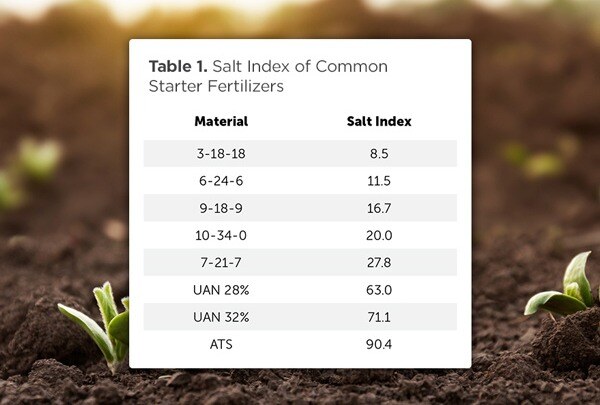
Source: University of Illinois.
ACCOMPLISH MAX helps to mitigate damage caused by fertilizer salts that accumulate in the root zone of developing seedlings. As shown in Figure 1, plants grown in salt-infused media exhibit significant differences when ACCOMPLISH MAX is used. The ACCOMPLISH MAX-treated plants on the right have superior root systems compared to the untreated plants.
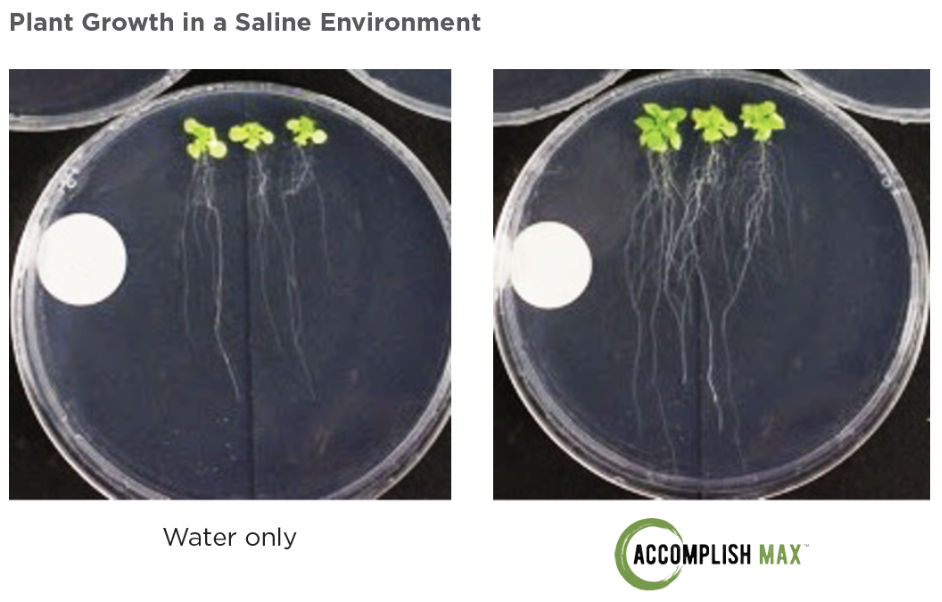 Figure 1. Arabidopsis plants exposed to 120mM NaCl (sodium chloride, or table salt) for 10 days. Untreated (left) vs treated with ACCOMPLISH MAX (right). Note the better root system with ACCOMPLISH MAX treatment.
Figure 1. Arabidopsis plants exposed to 120mM NaCl (sodium chloride, or table salt) for 10 days. Untreated (left) vs treated with ACCOMPLISH MAX (right). Note the better root system with ACCOMPLISH MAX treatment.
These same results are observed in commercial fields, where dry conditions increase the likelihood of damage from starter fertilizer applications as salts concentrate in the root zone of germinating plants.
Saline or sodic soil conditions can also hinder early-season vigor in developing seedlings. Applying ACCOMPLISH MAX at planting can mitigate the impact of fertilizer or residual salts in the soil while improving the availability of nutrients. This is particularly beneficial in cooler soil temperatures (<50°F), which reduce soil microbial activity and limit nutrient availability, as the concentrated microbial metabolites in ACCOMPLISH MAX perform effectively even when the native microbial population is less efficient at producing the necessary biochemical materials to promote nutrient mineralization.
Summary
By optimizing early-season nutrient availability and reducing stress, ACCOMPLISH MAX helps set the stage for maximum yield potential at harvest.
The typical recommended application rate for ACCOMPLISH MAX is 1 quart per acre with liquid starter in furrow or 2x2.
Learn more about ACCOMPLISH MAX by downloading the ACCOMPLISH MAX booklet.





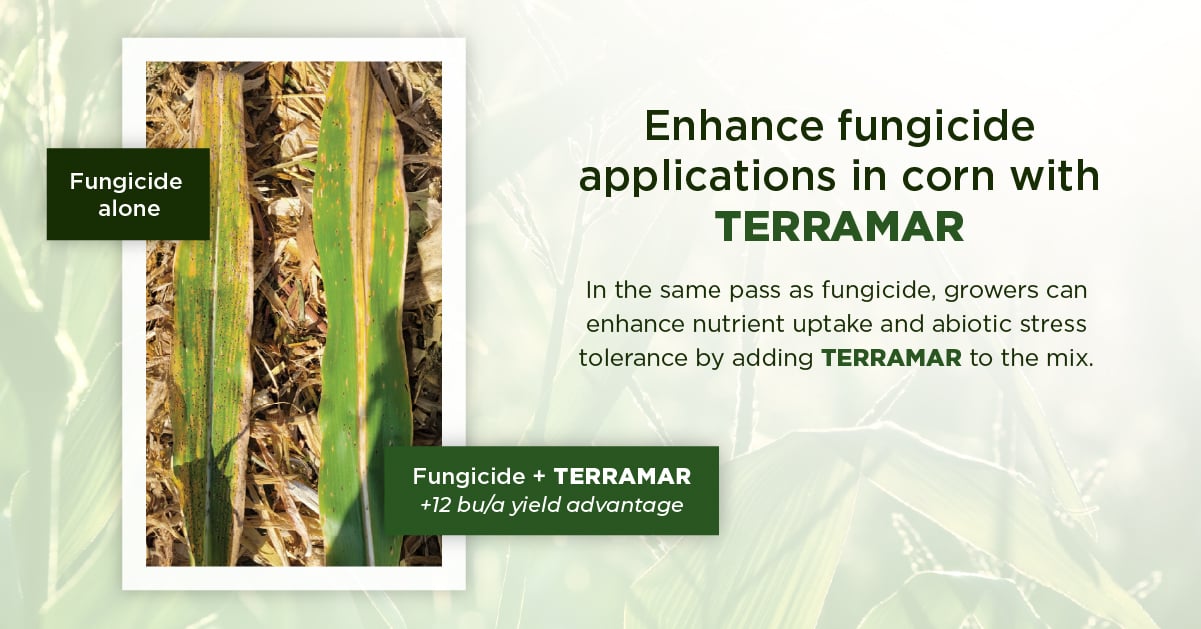
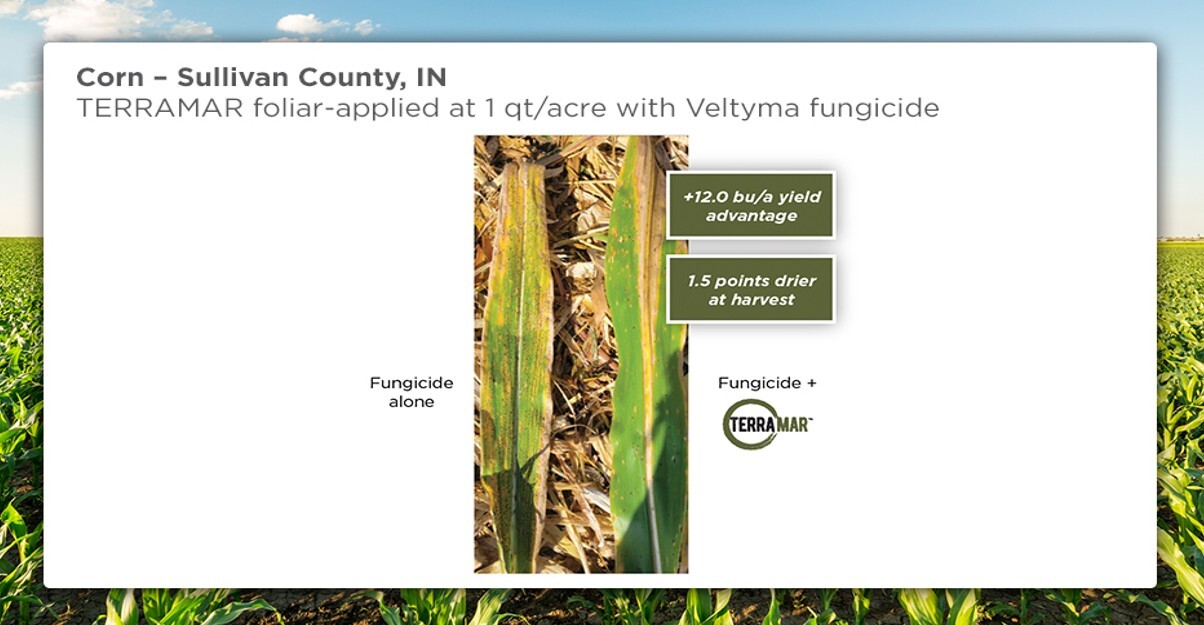
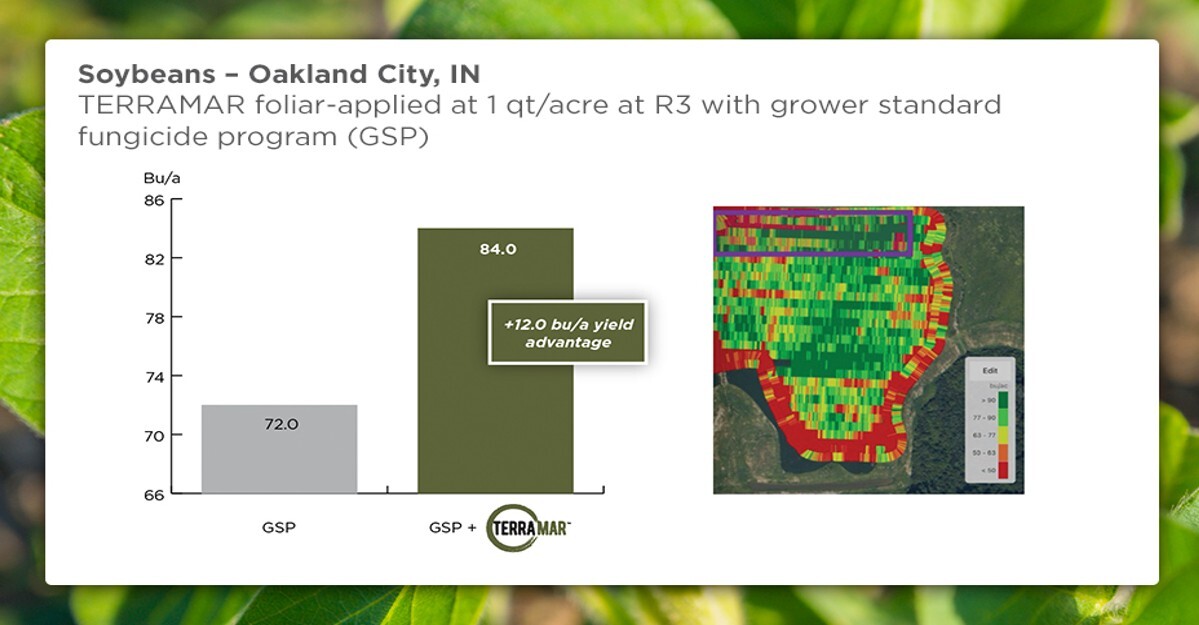

![[Interview] Keeping Crops on Track to Preserve Yield Potential](https://269648.fs1.hubspotusercontent-na1.net/hubfs/269648/Interview-crop-yield-potential.jpg)
 Agricen’s Scott Lay recently sat with Dennis Michelsen of WITY Radio to discuss using
Agricen’s Scott Lay recently sat with Dennis Michelsen of WITY Radio to discuss using ![[Watch] Preserving Yield Potential with Proactive Foliar Applications](https://www.agricen.com/hubfs/05-25-Foliar-webinar-1200x628-watch.jpg)



 As growers prepare for the upcoming cropping season, uncertainties surrounding commodity prices and fertilizer, seed and crop protection inputs will heavily influence the decision-making processes before planters roll. One thing, however, is always certain: Growers want to maximize production from every acre.
As growers prepare for the upcoming cropping season, uncertainties surrounding commodity prices and fertilizer, seed and crop protection inputs will heavily influence the decision-making processes before planters roll. One thing, however, is always certain: Growers want to maximize production from every acre.

![[Interview] Protecting Existing Crop Yield Potential from Heat Stress](https://www.agricen.com/hubfs/Interview-heat-stress.jpg)
 As we progress through the reproductive stage of the growing season, many growers have reason for optimism in terms of yield. But, even for those who are having a good year so far, stress from excess heat can have a negative impact on the crop. Agricen’s Scott Lay sat with Dennis Michelsen of WITY Radio to discuss how
As we progress through the reproductive stage of the growing season, many growers have reason for optimism in terms of yield. But, even for those who are having a good year so far, stress from excess heat can have a negative impact on the crop. Agricen’s Scott Lay sat with Dennis Michelsen of WITY Radio to discuss how 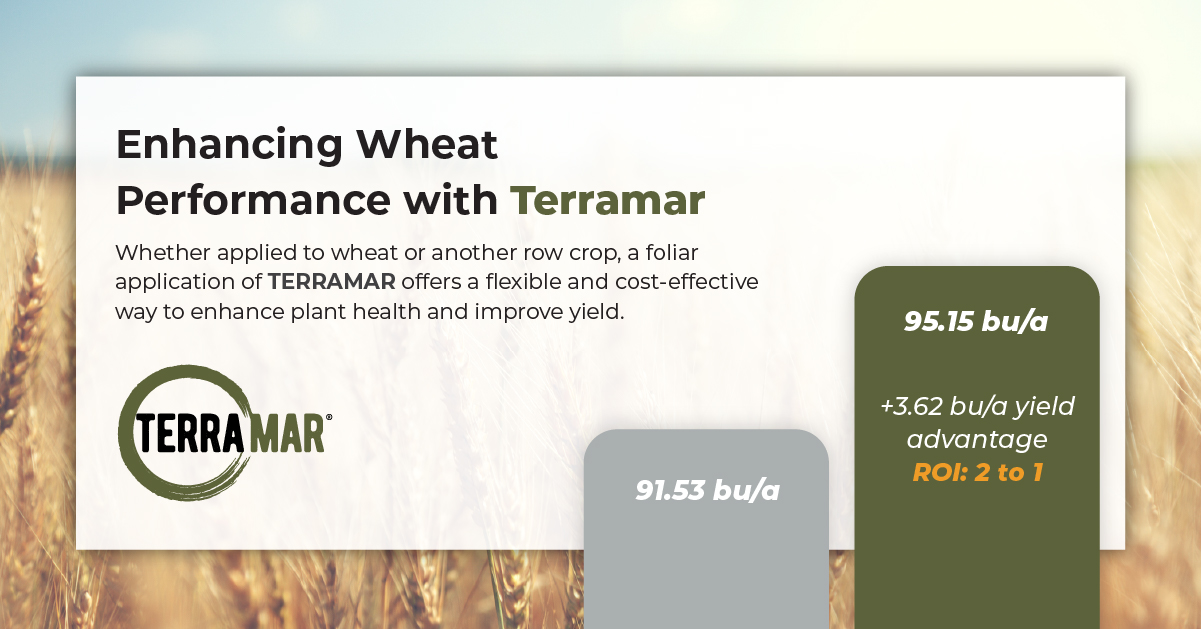
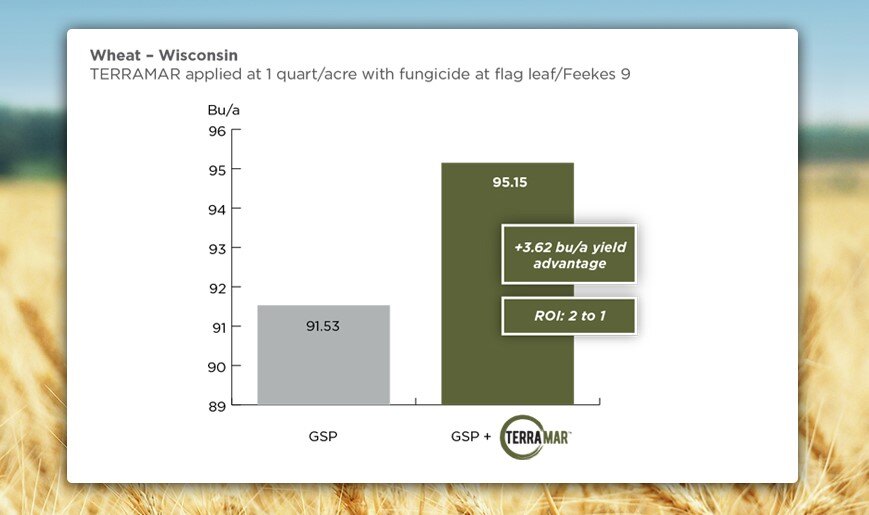
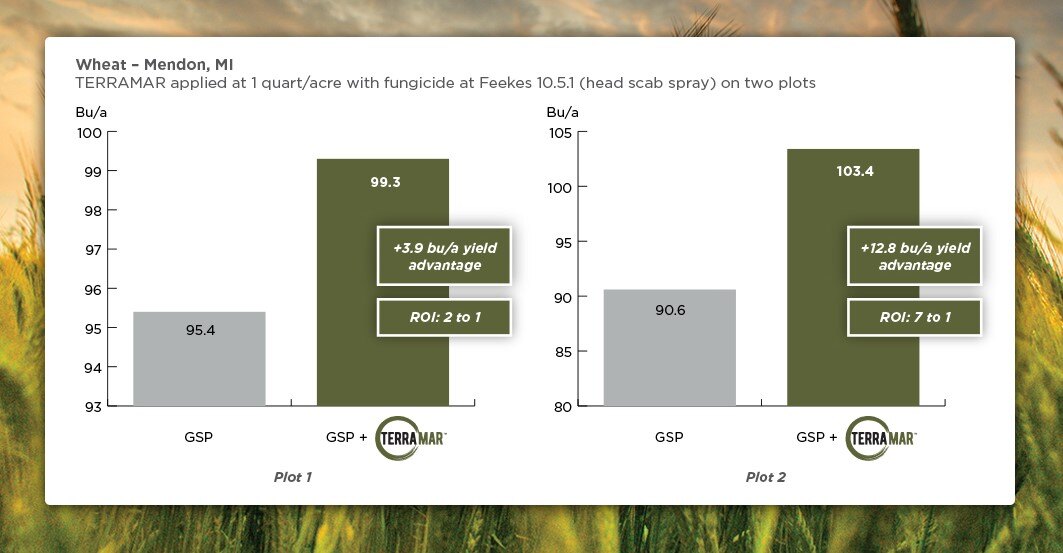
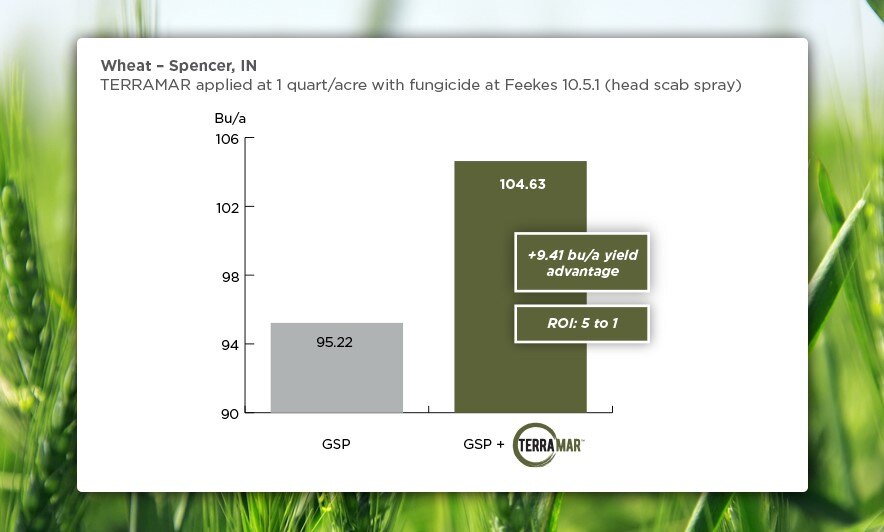
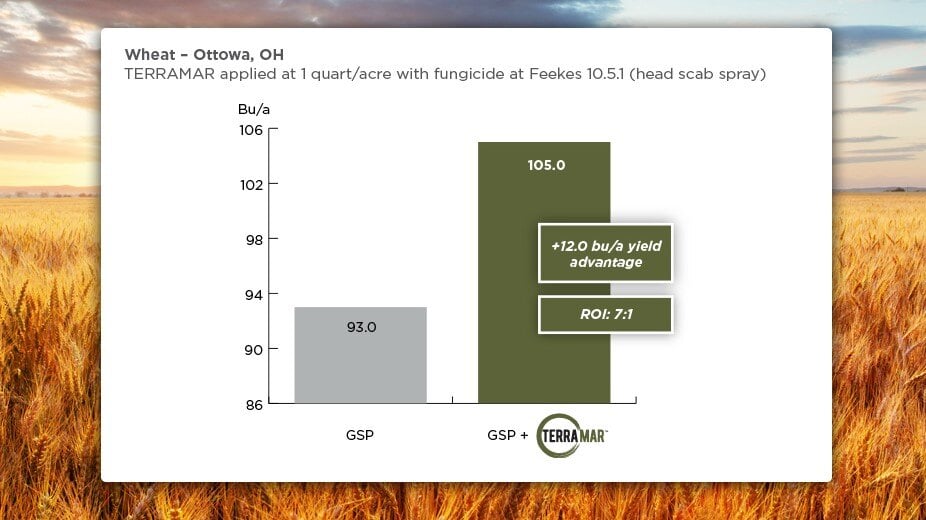
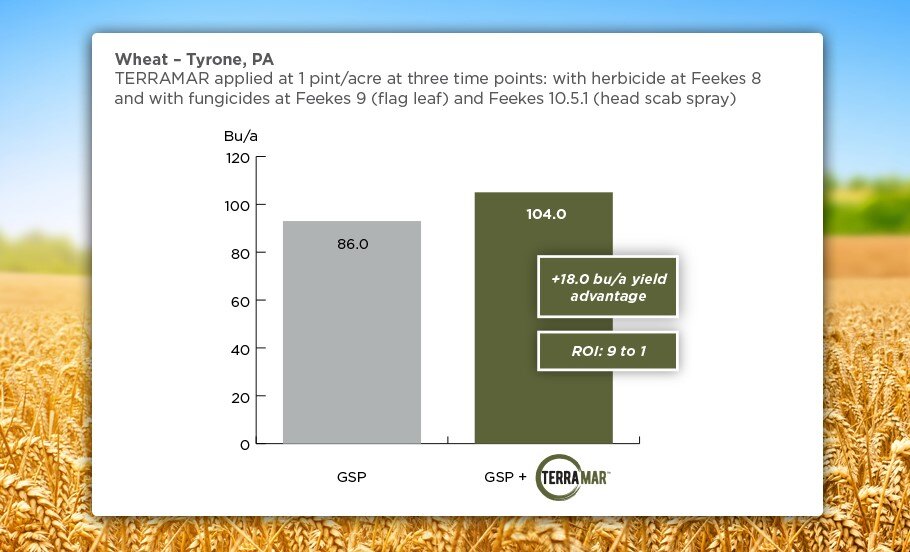

![[Corn Trial] Lower Canopy Temperatures & Greater Nutrient Uptake with TERRAMAR](https://www.agricen.com/hubfs/Terramar-tissue-samples-1200px.jpg)
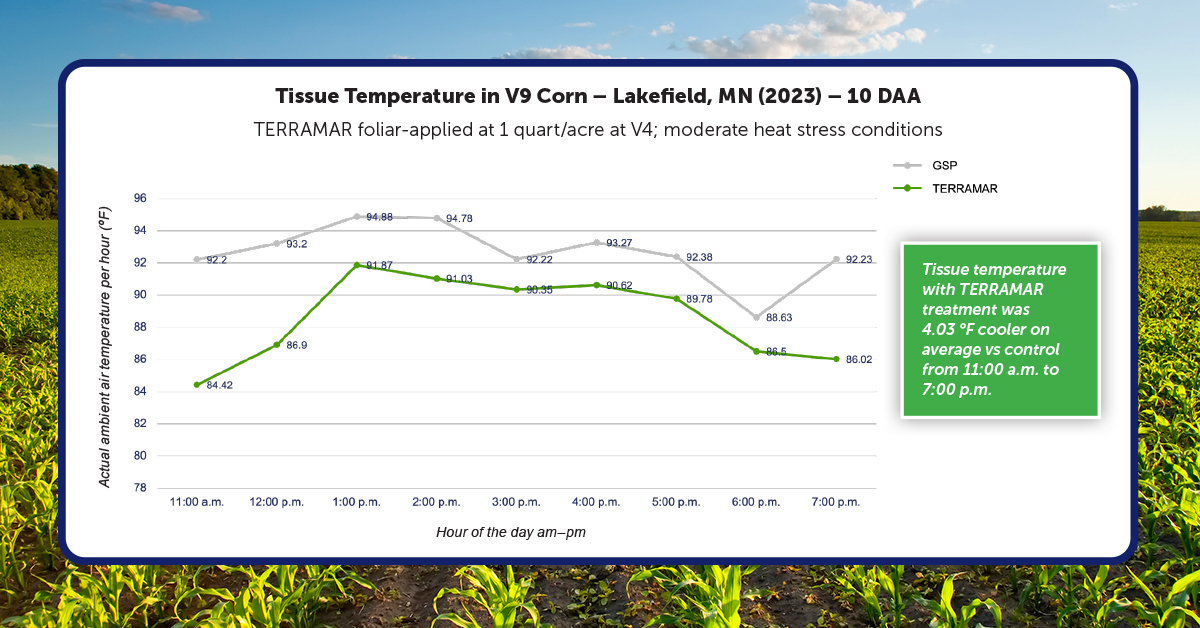

![[Interview] Addressing Weather-Induced Crop Stress](https://www.agricen.com/hubfs/Interview-weather-stress.jpg)
 As growers finish putting this year’s crop in the ground, Agricen’s Scott Lay spoke with WITY Radio’s Dennis Michelsen about
As growers finish putting this year’s crop in the ground, Agricen’s Scott Lay spoke with WITY Radio’s Dennis Michelsen about ![[On-Demand Ag Webinar] Stand Up to Stress for Higher Yield & ROI](https://www.agricen.com/hubfs/CropLife-webinar-1200px-1.jpg)
